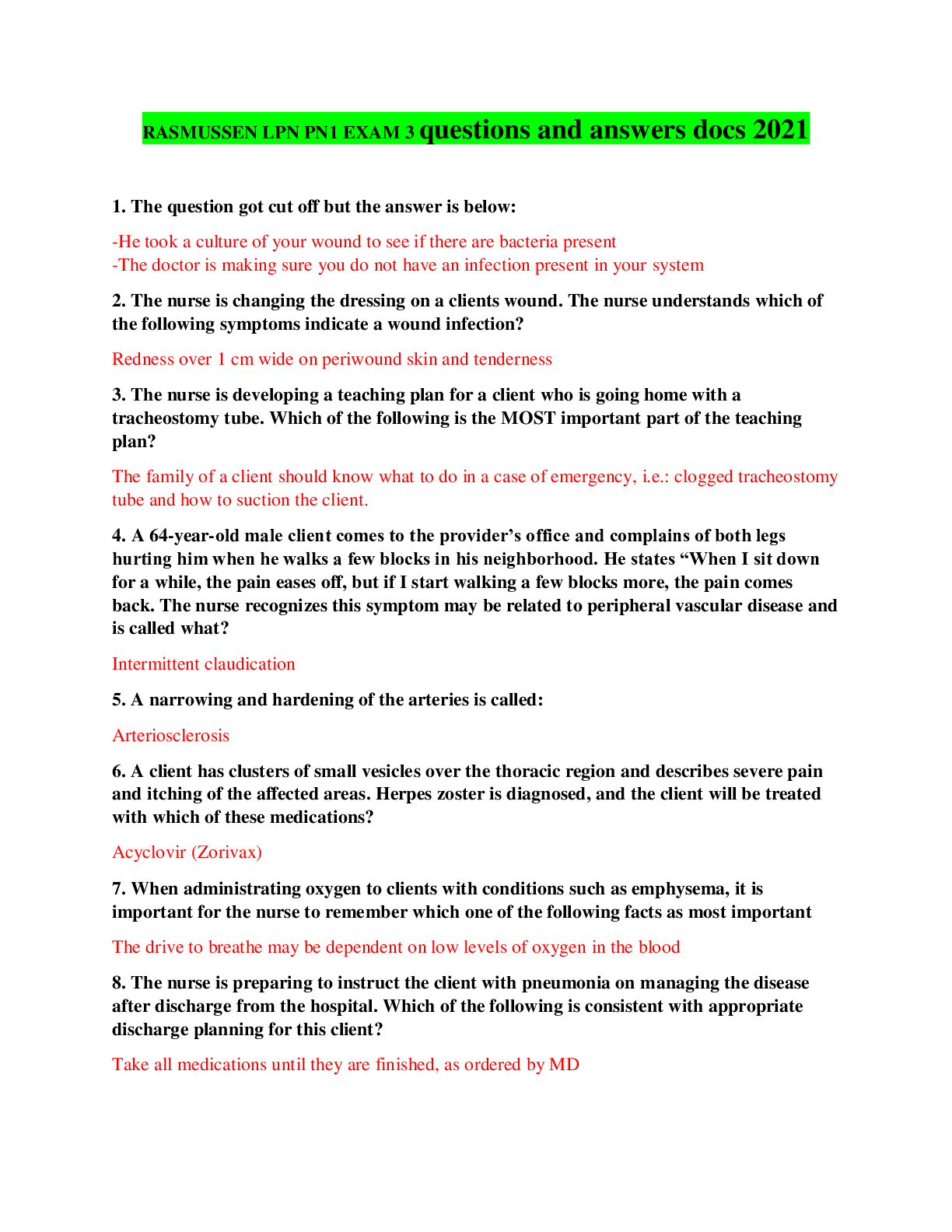*NURSING > EXAM > Child Health Nursing (NURS 4140) Exam 3 Questions & Answers (Explained With Rationales) (All)
Child Health Nursing (NURS 4140) Exam 3 Questions & Answers (Explained With Rationales)
Document Content and Description Below
Child Health Nursing (NURS 4140) Exam 3 Questions & Answers (Explained With Rationales)-A 10-year-old sustained a fracture in the epiphyseal plate of her right fibula from a fall. When discussing this... injury with her parents, the nurse would consider which statement? a. This type of fracture is inconsistent with a fall. b. Growth can be affected by this type of fracture. c. Healing is usually delayed in this type of fracture. d. This is an unusual fracture site in young children. - b. Growth can be affected by this type of fracture. Rationale: Detection of epiphyseal injuries is sometimes difficult, but fractures involving the epiphysis or epiphyseal plate present special problems in determining whether bone growth will be affected. Healing of epiphyseal injuries is usually prompt. The epiphysis is the weakest point of the long bones. This is a frequent site of damage during trauma. A 14-year-old girl is in the intensive care unit after a spinal cord injury 2 days ago. Nursing care for this child includes which action(s)? (Select all that apply.) a. Administering corticosteroids b. Monitoring for respiratory complications c. Discussing long-term care issues with the family d. Monitoring and maintaining systemic blood pressure e. Minimizing environmental stimuli - a. Administering corticosteroids b. Monitoring for respiratory complications d. Monitoring and maintaining systemic blood pressure Rationale: Spinal cord injury patients are physiologically labile, and close monitoring is required. They may be unstable for the first few weeks after the injury. Corticosteroids are administered to minimize the inflammation present with the injury. It is not necessary to minimize environmental stimuli for this type of injury. Discussing long-term care issues with the family is inappropriate. The family is focusing on the recovery of their child. It will not be known until the rehabilitation period how much function the child may recover. A 4-year-old child has just been diagnosed with pseudohypertrophic (Duchenne) muscular dystrophy. The management plan would include which action? a. Suggest ways to limit use of muscles. b. Recommend genetic counseling. c. Explain that the disease is easily treated. d. Assist family in finding a nursing facility to provide child's care. - b. Recommend genetic counseling. Rationale: Pseudohypertrophic (Duchenne) muscular dystrophy is inherited as an X-linked recessive gene. Genetic counseling is recommended for parents, female siblings, maternal aunts, and their female offspring. No effective treatment exists at this time for childhood muscular dystrophy. Maintaining optimal function of all muscles for as long as possible is the primary goal. It has been found that children who remain as active as possible are able to avoid wheelchair confinement for a longer time. Assisting the family in finding a nursing facility to provide the child's care is inappropriate at the time of diagnosis. When the child becomes increasingly incapacitated, the family may consider home-based care, a skilled nursing facility, or respite care to provide the necessary care. A child is unconscious after a motor vehicle accident. The watery discharge from the nose tests positive for glucose. Which does this finding suggest? a. Diabetic coma b. Upper respiratory tract infection c. Brainstem injury d. Leaking of cerebrospinal fluid (CSF) - d. Leaking of cerebrospinal fluid (CSF) Rationale: Watery discharge from the nose that is positive for glucose suggests leaking of CSF from a skull fracture and is not associated with diabetes or respiratory tract infection. The fluid is probably CSF from a skull fracture and does not signify whether the brainstem is involved. A child who needs several blood tests is crying and upset because of memories of the venipuncture done at the clinic 2 days ago. What would the nurse explain? a. Most blood tests on children require only a finger puncture because a small amount of blood is needed. b. A topical application of local anesthetic can used to numb the area. c. The venipuncture discomfort is very brief. d. Only one venipuncture will be needed. - b. A topical application of local anesthetic can used to numb the area. Rationale: Preschool children are concerned with both pain and the loss of blood. When preparing the child for venipuncture, the nurse will use a topical anesthetic to eliminate any pain. This is a traumatic experience for preschool children. They are concerned about their bodily integrity. A local anesthetic should be used, and a bandage should be applied to maintain bodily integrity. The nurse should not promise one attempt in case multiple attempts are required. Both finger punctures and venipunctures are traumatic for children. Both require preparation. A child with growth hormone (GH) deficiency is receiving GH therapy. When is the best time for the GH to be administered? a. At bedtime b. After meals c. On arising in the morning d. Before meals - a. At bedtime Rationale: Injections are best given at bedtime to more closely approximate the physiologic release of GH. After or before meals and on arising in the morning do not mimic the physiologic release of the hormone. [Show More]
Last updated: 7 months ago
Preview 1 out of 20 pages

Loading document previews ...
Buy this document to get the full access instantly
Instant Download Access after purchase
Buy NowInstant download
We Accept:

Reviews( 0 )
$14.50
Can't find what you want? Try our AI powered Search
Document information
Connected school, study & course
About the document
Uploaded On
Dec 30, 2024
Number of pages
20
Written in
Additional information
This document has been written for:
Uploaded
Dec 30, 2024
Downloads
0
Views
17
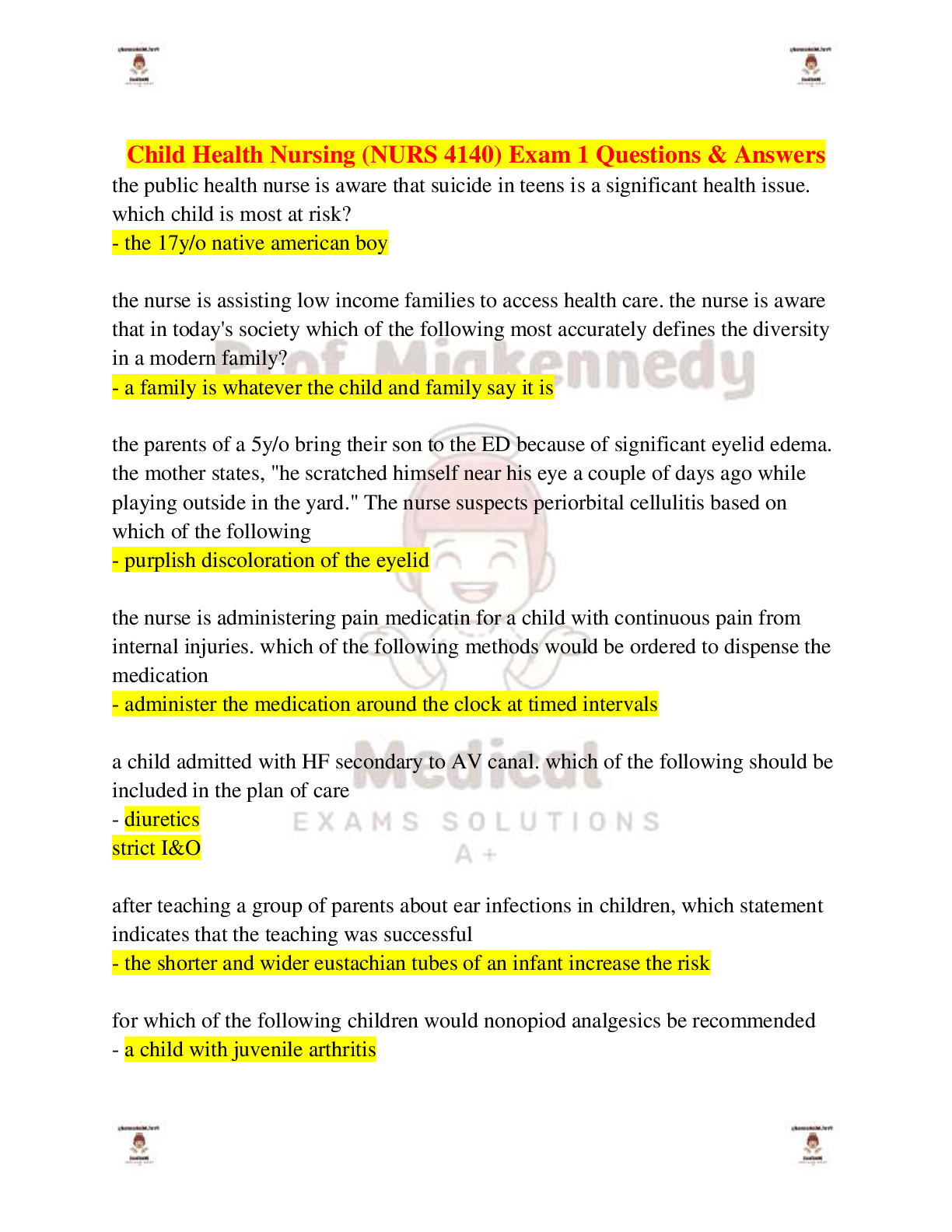

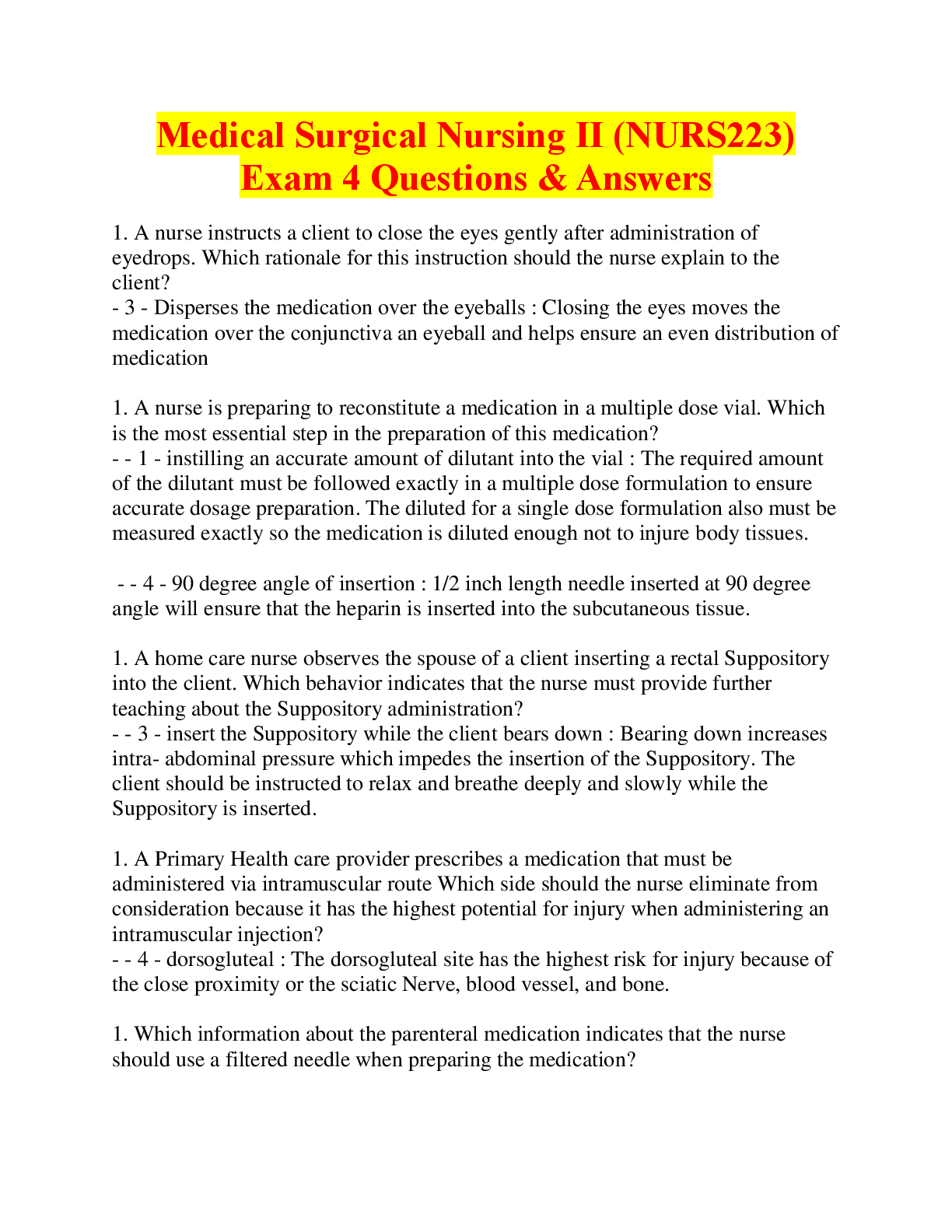
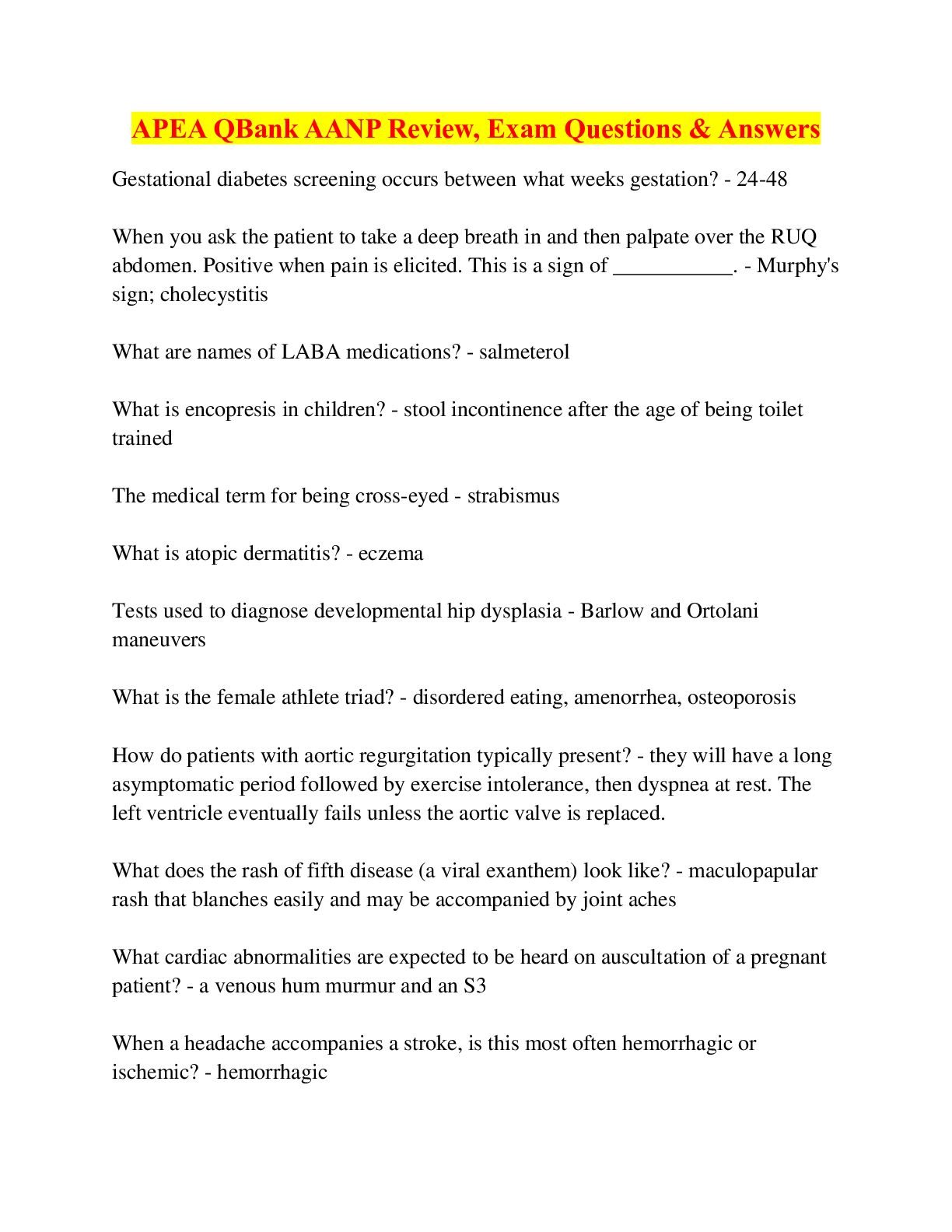
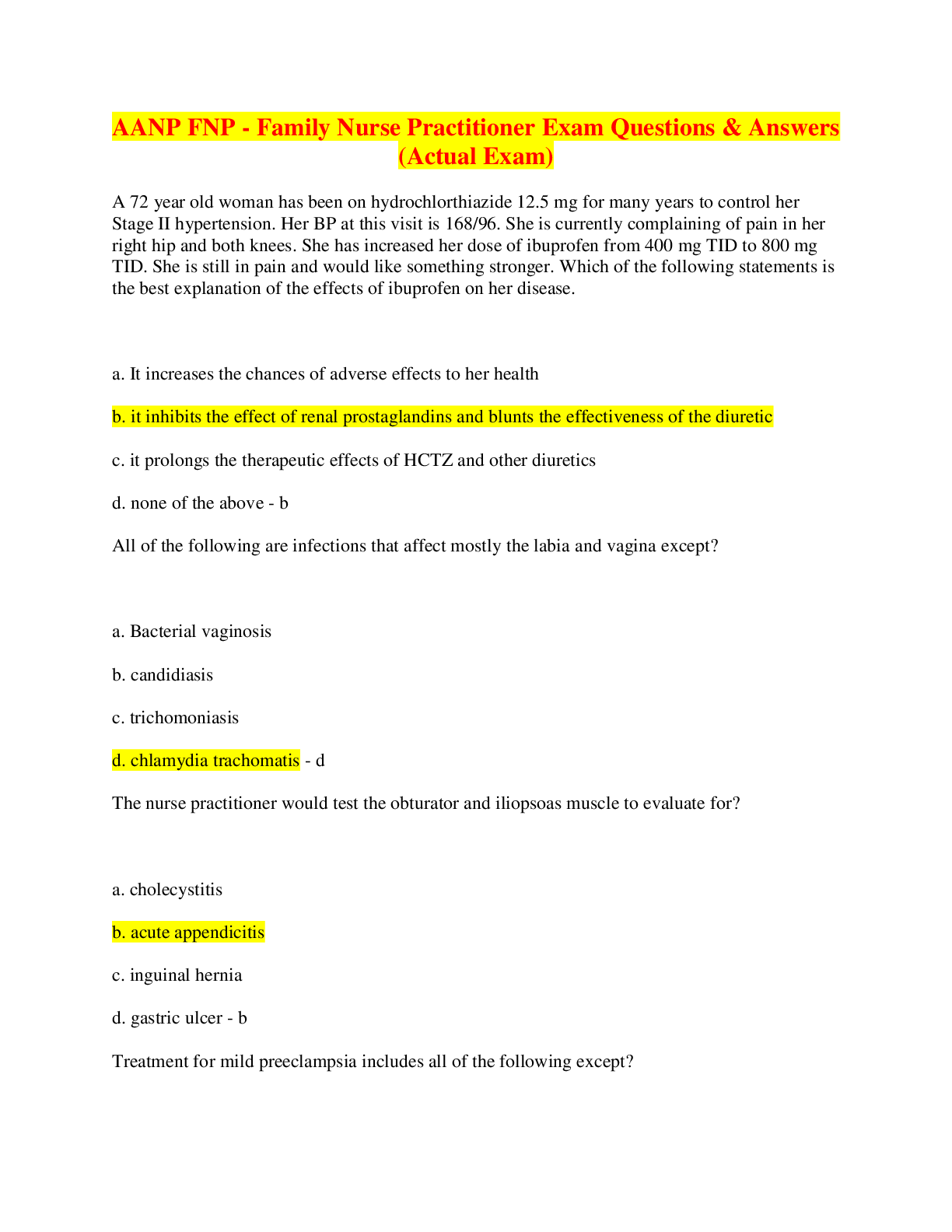
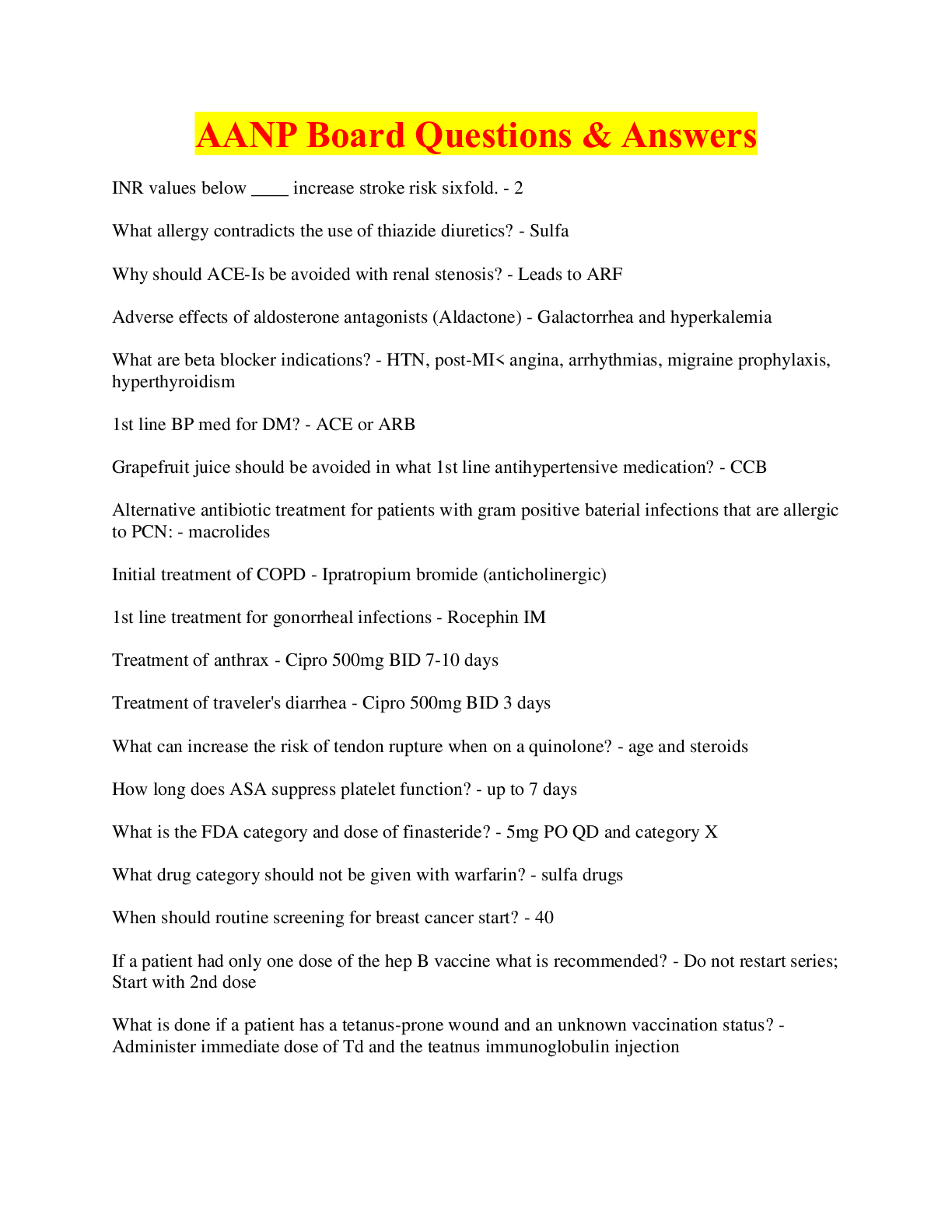
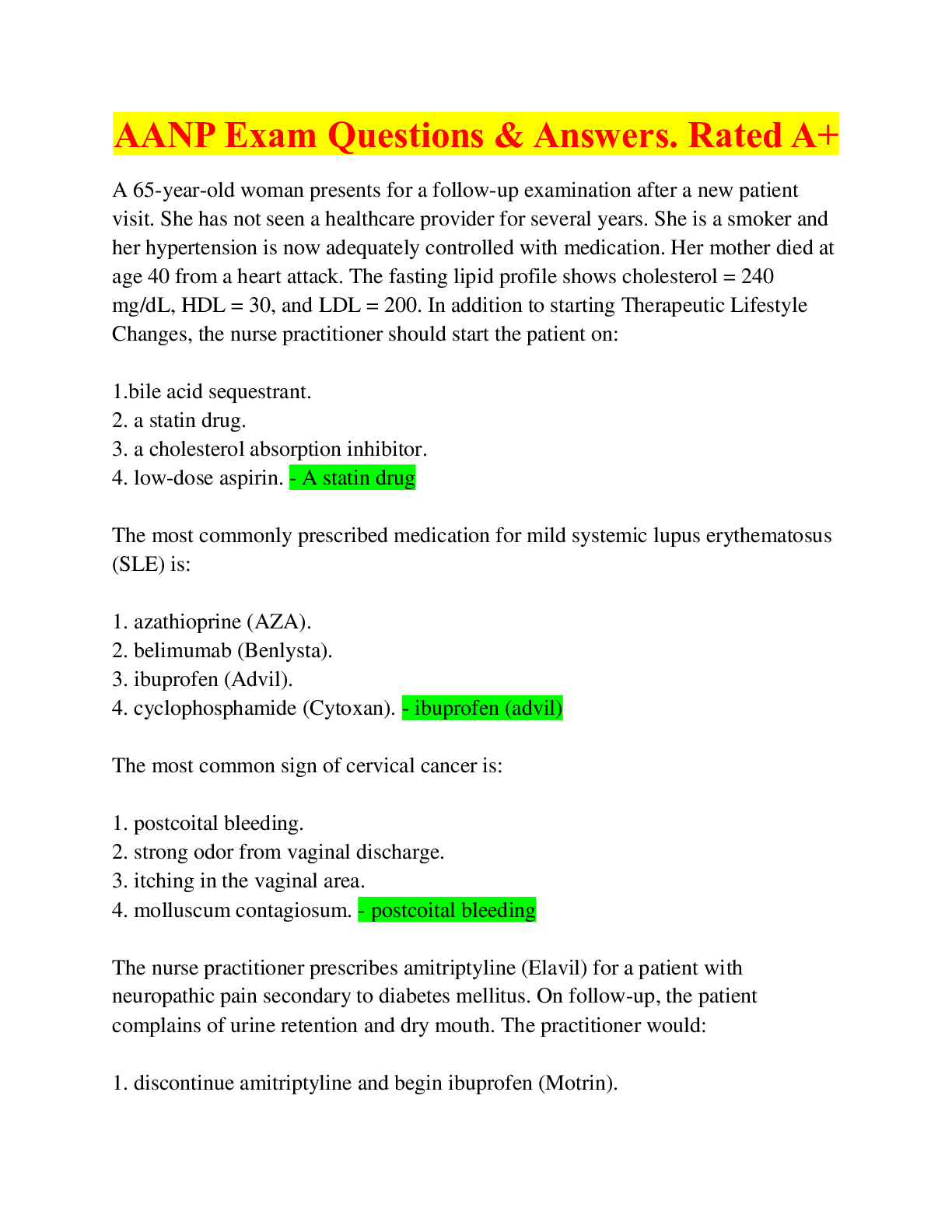
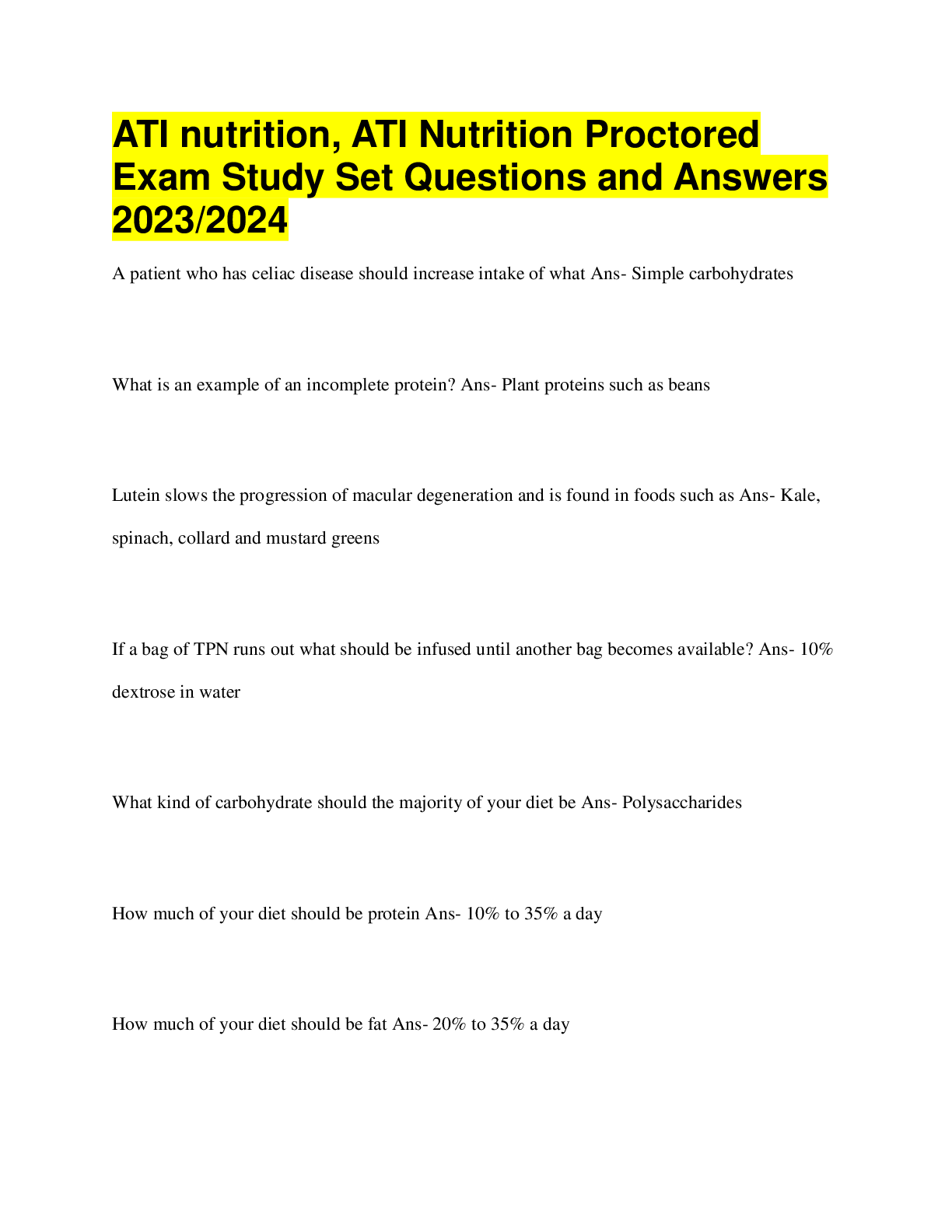
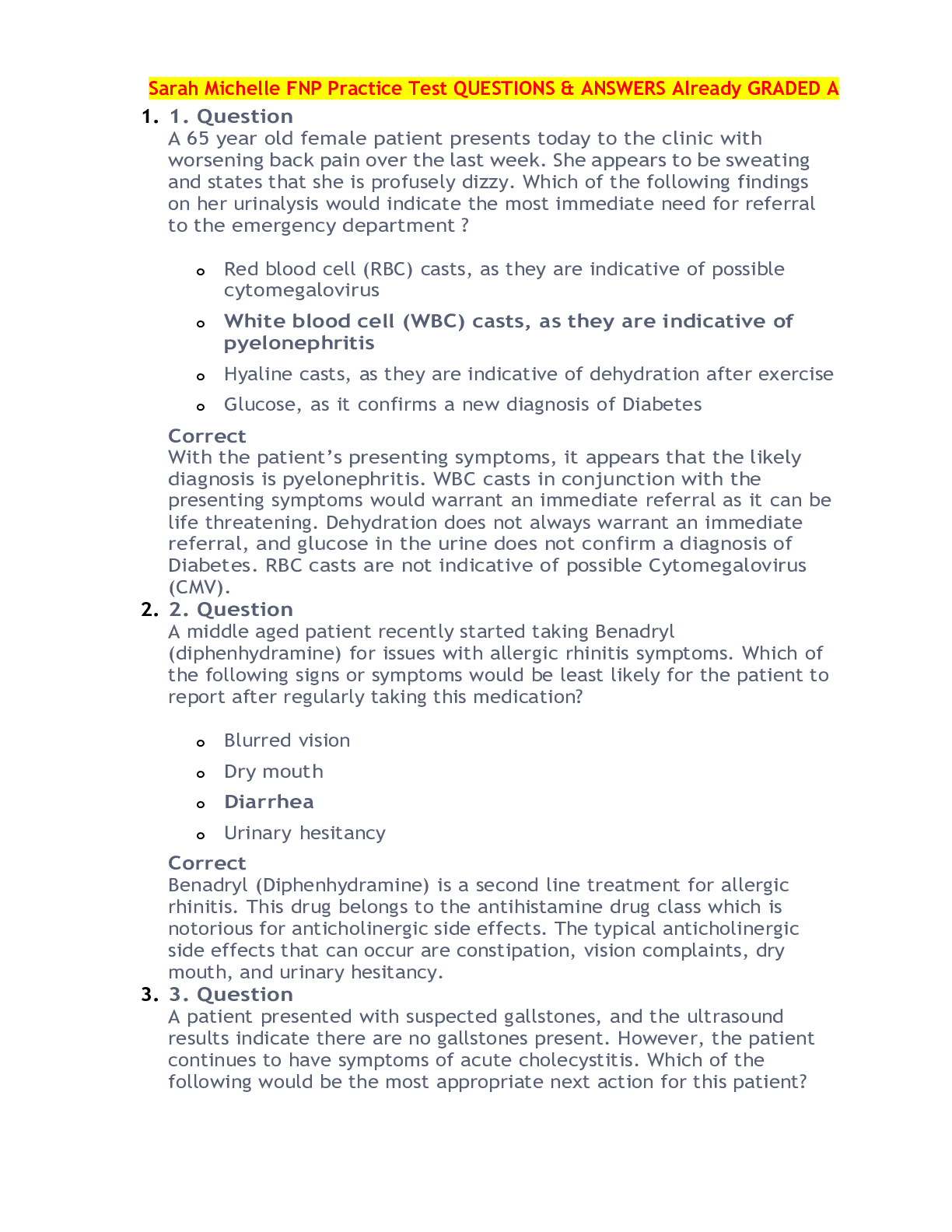
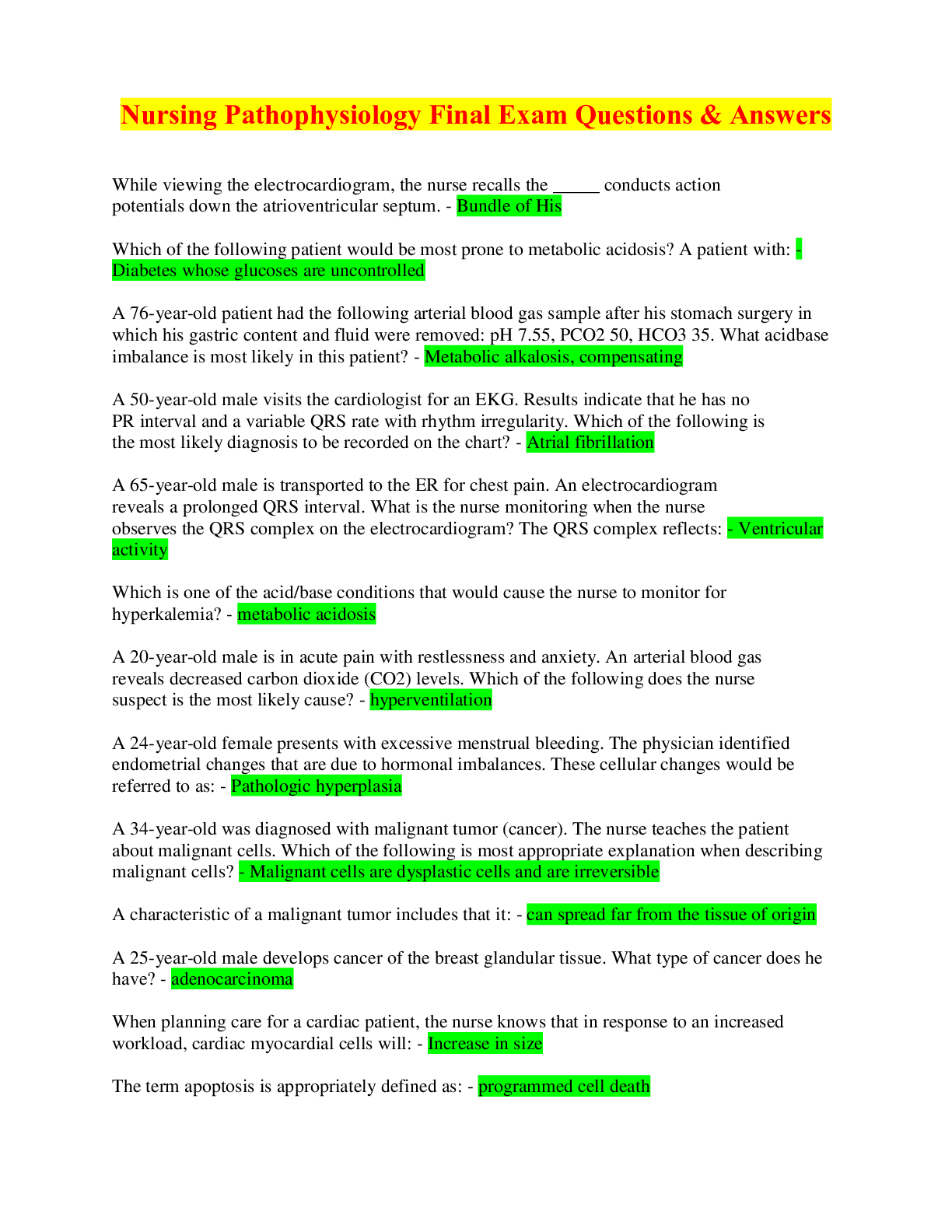
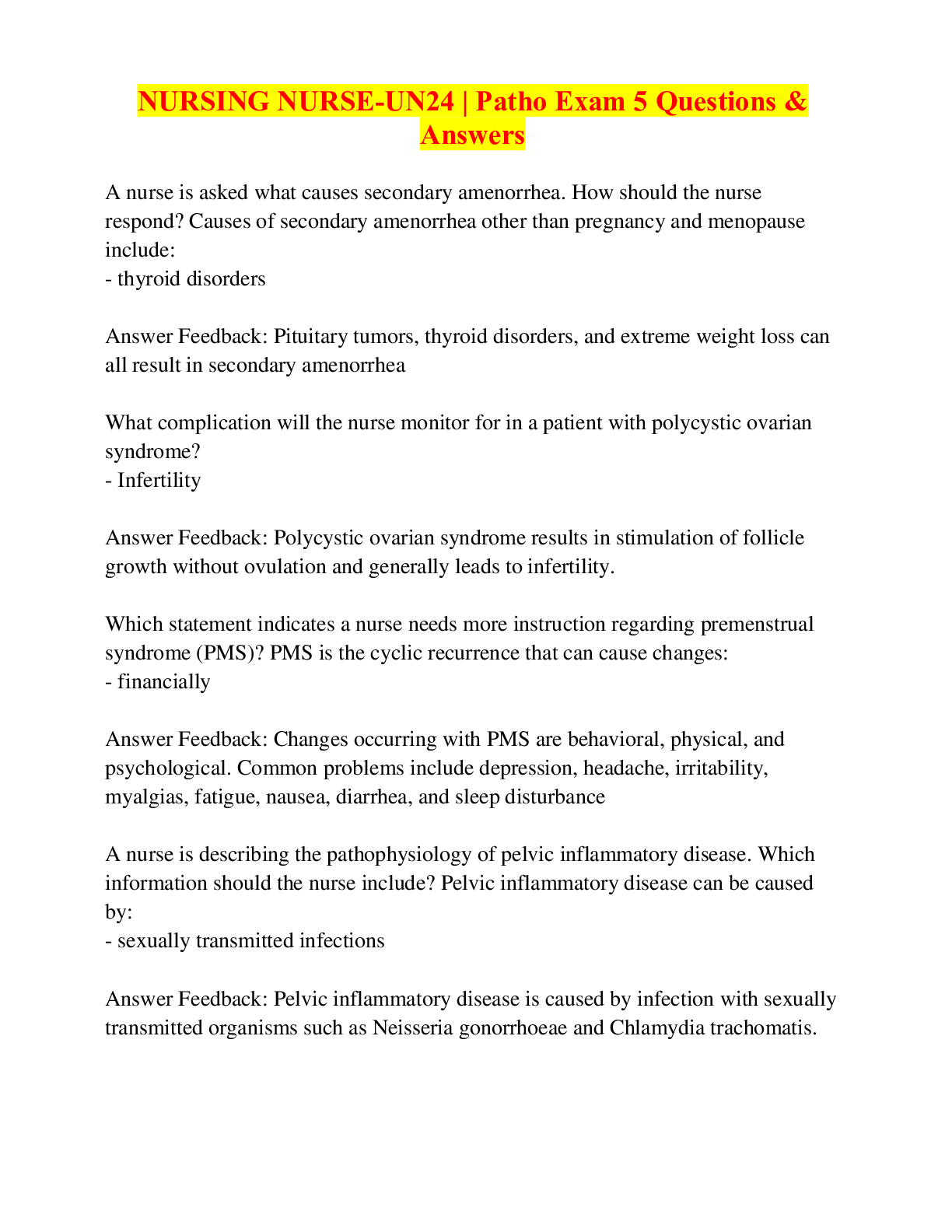

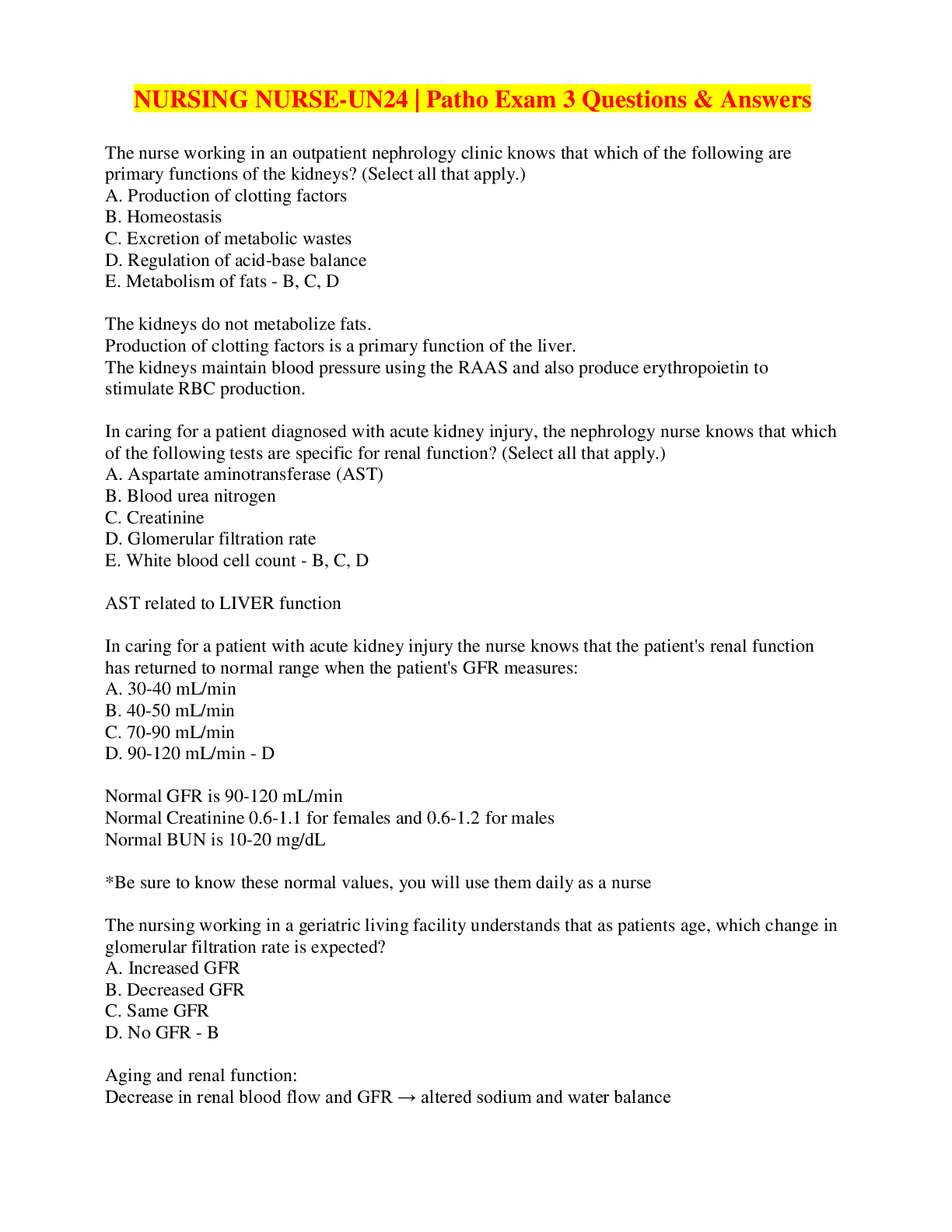
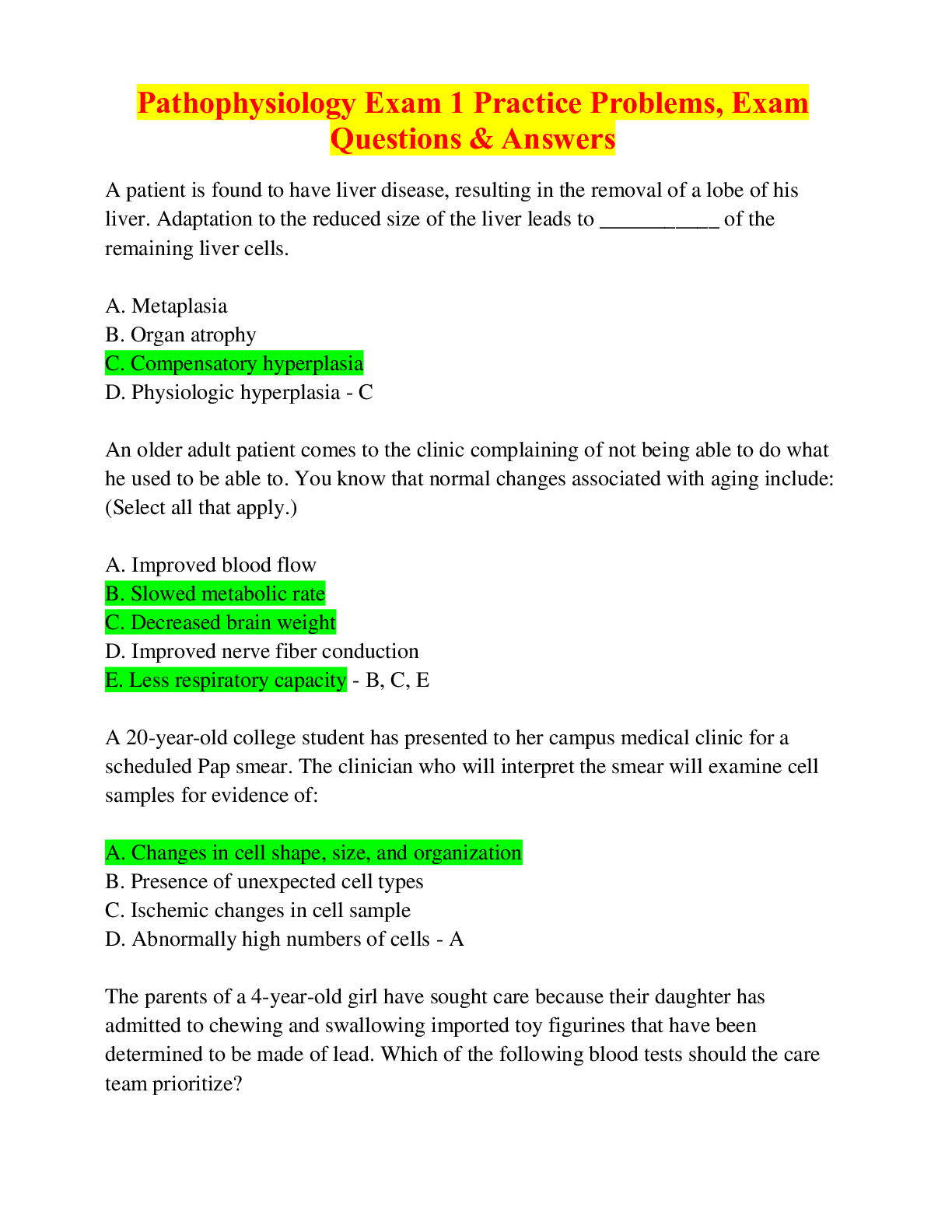
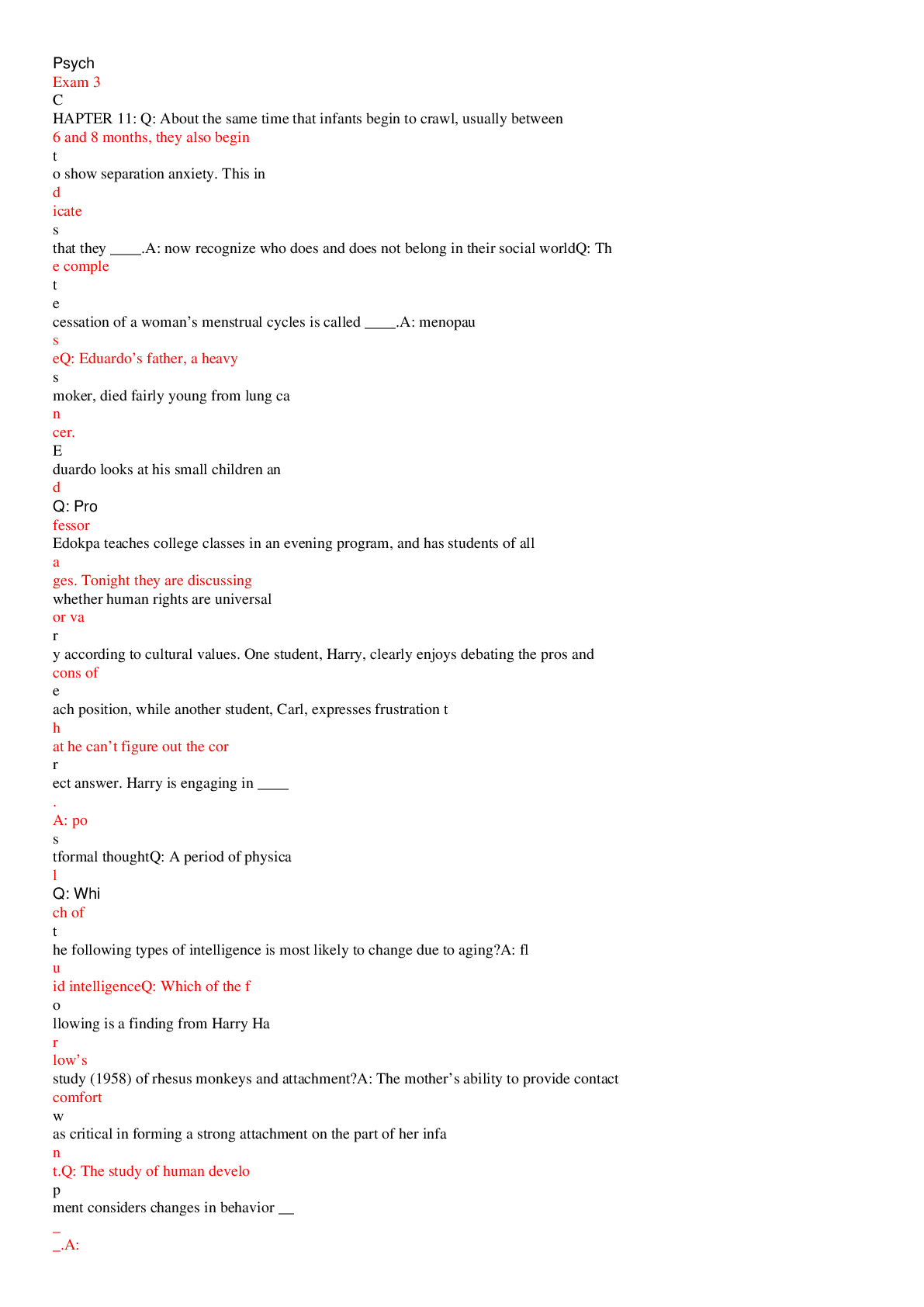



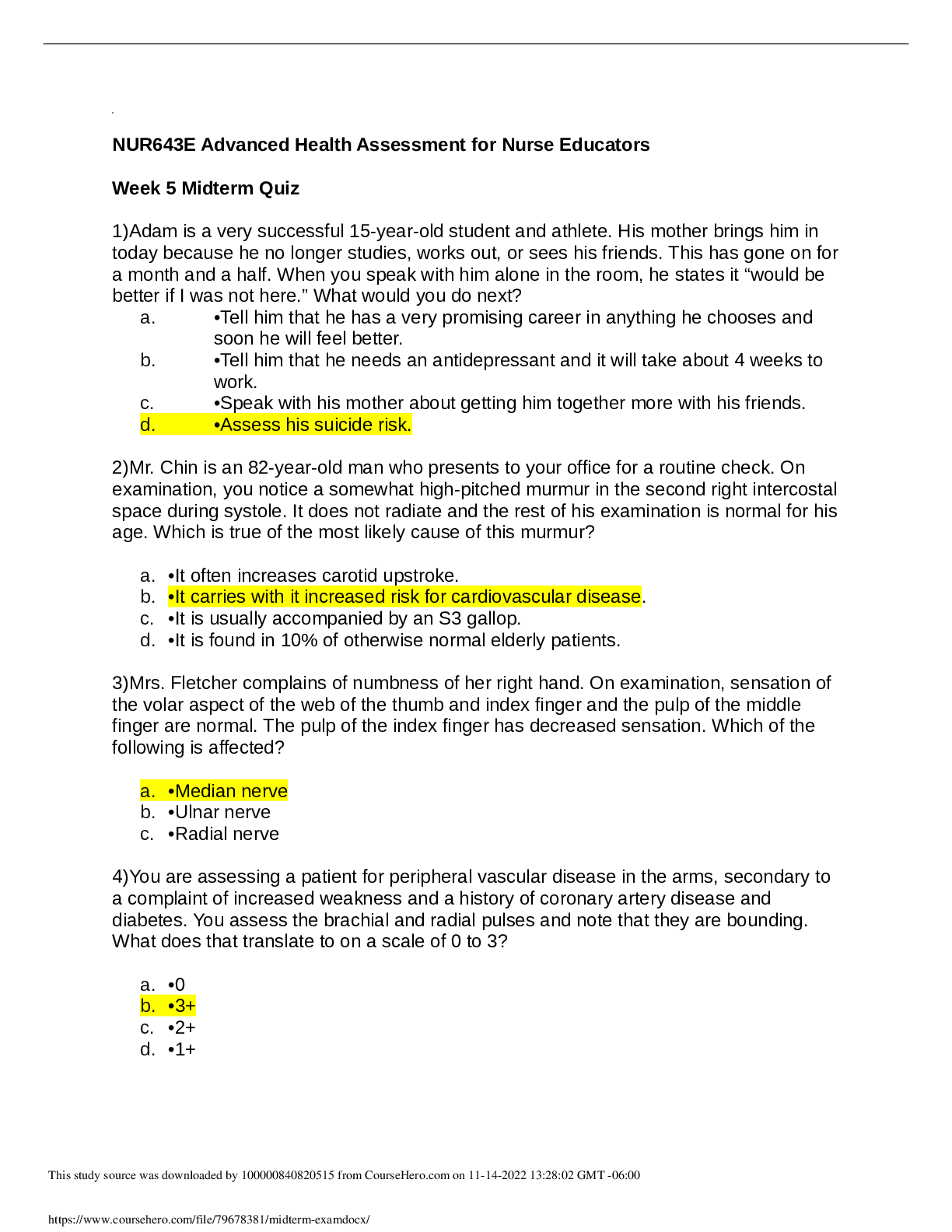
.png)





